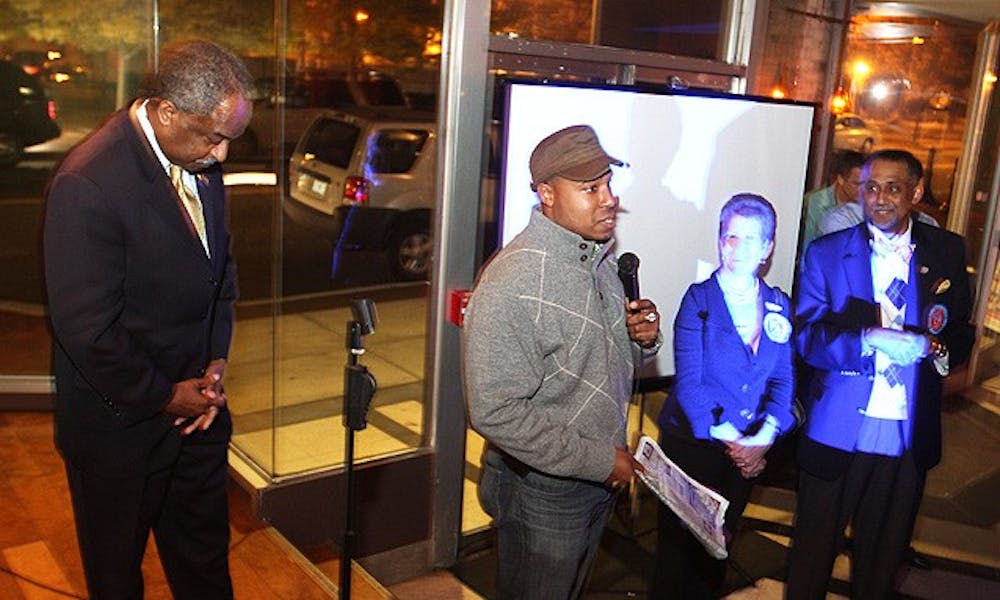Durham County voters elected Durham Mayor Bill Bell to a sixth consecutive term and also voted in favor of two tax increases Tuesday.
Results posted by the Durham County Board of Elections indicate that Bell—incumbent since 2001 and the second mayor in the county’s history to be elected to a sixth consecutive term—was elected with nearly 82 percent of the vote, trouncing his opponent, Rev. Sylvester Williams, who garnered just 17.6 percent. At press time, 98 percent of voting precincts had reported results.
Upon approving both referenda on the ballot, Durham County residents will eventually see a sales tax hike from 6.75 to 7.50 percent. The revenue from the half-cent and quarter-cent increases will fund public transportation and education, respectively.
Voter turnout was recorded at slightly more than 17 percent.
“We’re going to continue down the path that we’ve started, continuing to revitalize downtown and revitalize our inner-city neighborhoods,” Bell said. “I will continue working with our city manager about the depth of our challenges, including reducing crime and improving law enforcement.”
Williams said despite the loss, he was still proud of his campaign for offering Durham voters a choice between Bell’s agenda and his own platform, which he believes included a more productive plan to lower taxes and crime rates.
Williams added that he is grateful for the efforts of his campaign staff, though he is currently unsure how he will be involved in city issues in the near future.
“I am very concerned about the city’s direction—I am concerned about the crime, gun violence, same-sex marriage being forced on people that don’t want it, I’m doing a lot of praying and talking to the Lord Jesus and talking to my campaign staff,” he said. “We did give the voters a choice, and that’s one thing I’m really proud of.”
A majority of Durham voters also voted “yes” on both tax referenda on the ballot.
“It’s a great day for Durham, not because of my re-election but because of the two referendums that passed,” Bell said. “That spoke a great deal about our community being a progressive and forward-thinking community.”
The half-cent Public Transportation Sales and Use Tax gained the support of about 60 percent of voters. In its first full calendar year of collection, the tax increase is estimated to raise $17.3 million. The revenue will be directed to transit improvements including increased bus hours and a commuter line between Durham and Research Triangle Park slated for completion in 2018.
A similar referendum may be put to vote on Wake and Orange County ballots in 2012.
The quarter-cent County Sales and Use Tax passed with more than 56 percent of the vote. The revenue—estimated at $9.2 million in the first full year of implementation—will support local public education, including approximately $6.17 million for Durham Public Schools, $825,000 for Durham Technical Community College and $200,000 for pre-kindergarten programs.
Eugene Brown and Diane Catotti, two incumbents in the race for three at-large city council memberships, retained their seats by about 22 percent and 27 percent, respectively.
Steve Schewel, visiting assistant professor of public policy in the Hart Leadership Program, won the third remaining position on city council with about 25 percent of the vote.
Brown, Catotti and Schewel could not be reached for comment.
Get The Chronicle straight to your inbox
Signup for our weekly newsletter. Cancel at any time.

